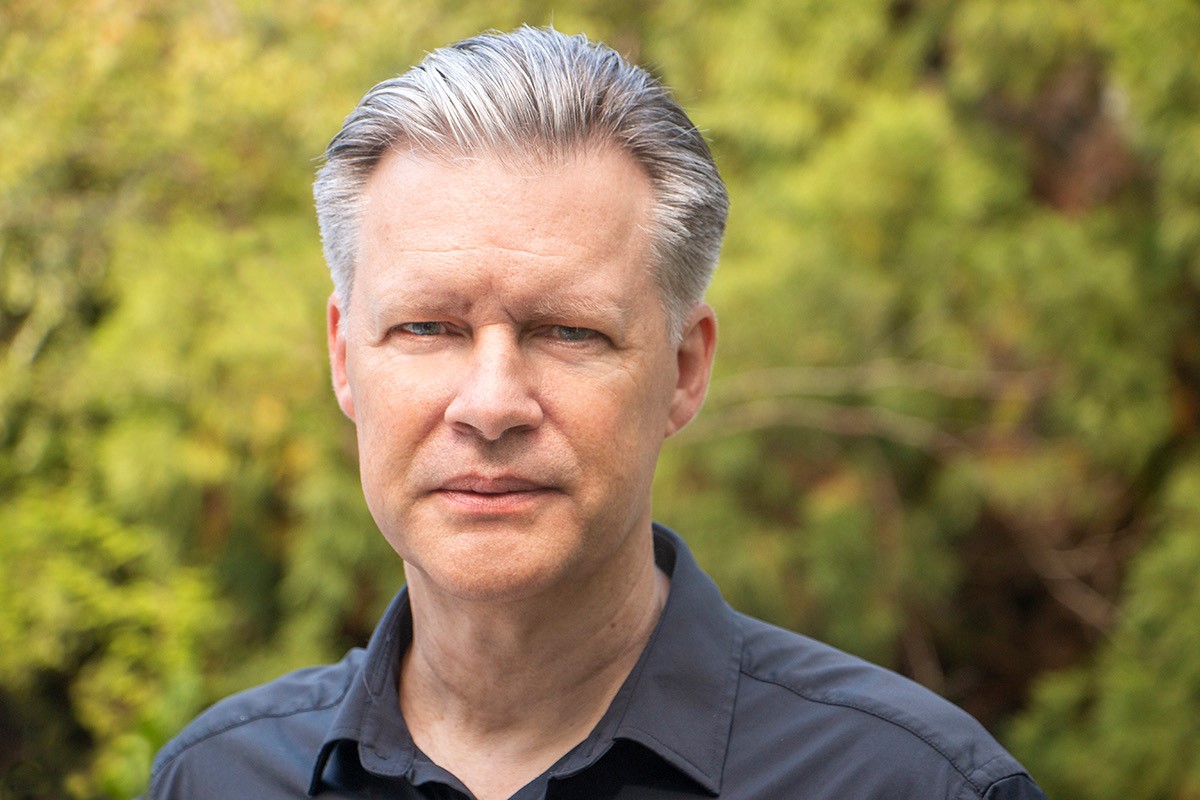In this in-depth conversation, Nick Henderson, head of compliance at VinciWorks, speaks with Andrew McBride, founder of Integrity Bridge and former Chief Compliance Officer at Albemarle, about one of the most significant FCPA enforcement actions in recent years. Andrew shares practical insights from inside the investigation, including why Albemarle chose to terminate all third-party agents, how compliance was embedded across global operations, and how the company secured a 45% penalty discount and a non-prosecution agreement. We also explore what smarter compliance looks like in 2025, how enforcement priorities are shifting, and what advice Andrew has for compliance officers navigating complex global risks today.
About VinciWorks:
VinciWorks is a leading provider of compliance solutions, helping businesses manage risk and demonstrate real-time compliance across anti-bribery, ethics, and corporate governance. Our award-winning tools include a fully customisable Gifts and Hospitality Register, built into our compliance management platform Omnitrack, enabling businesses to monitor and report potential conflicts with ease. Combined with our expert-developed Anti-Bribery and Corruption training, VinciWorks supports organisations to foster a culture of integrity, meet their legal obligations under the Bribery Act 2010, the FCPA and international obligations, and stay one step ahead of enforcement risk.
About Andrew McBride:
Andrew McBride is the CEO of Integrity Bridge LLC, a consulting practice offering strategic & operational compliance support for companies.
Andrew has over 25 years of compliance experience, at an international law firm and several multinational companies in the Americas, Europe and Australasia. In his most recent role as Chief Risk & Compliance Officer at Albemarle Corporation, he built a new ethics and compliance program, and recruited a new team, against the backdrop of an FCPA investigation. The investigation was resolved by way of a Non-Prosecution Agreement with the U.S. Department of Justice and Cease & Desist Order with the U.S. Securities and Exchange Commission. As part of the resolution, Albemarle secured a 45% reduction in penalty due to its co-operation with the investigation and the compliance program that was built, the largest FCPA % penalty reduction to date. In recognition of these efforts Albemarle was awarded Compliance Program of the Year by Compliance Week in May 2024.
In parallel to the FCPA investigation and business ethics efforts, Andrew played a key role supporting Albemarle’s commitment to sustainability including UN Global Compact membership, management of the company’s human rights framework and support for the company’s successful efforts to achieve certification against the Initiative of Responsible Mining Assurance (IRMA)’s Mining Standard.
Prior to Albemarle, Andrew was Associate General Counsel Compliance at BHP, Senior Antitrust Counsel at BP and Managing Associate at Linklaters. Andrew is admitted to practice law in England, Western Australia & California. He is also a Certified Fraud Examiner.
Key takeaways from the interview:
Albemarle secured a 45% FCPA penalty discount and a non-prosecution agreement by demonstrating strong remediation and early action.
The company terminated all third-party sales agents, reducing risk and signalling serious commitment to reform.
Compliance was embedded into core business functions, including sales operations and CRM systems.
Data analytics played a critical role in detecting risk and measuring cultural health.
DOJ trust was earned through transparency, speed of remediation, and sustained programme improvement.
Compliance teams must move beyond policies to integrated, cross-functional risk management.
Future enforcement will be policy-driven and focused on risks like cartels, organised crime, and supply chain fraud.
This interview has been lightly edited for clarity. You can watch the full webinar here.
Nick Henderson: So, Andrew, great to have you with us. Thanks so much for joining us on this VinciWorks webinar. To begin with, could you walk us briefly through the background of the FCPA charges against Albemarle?
Andrew McBride: Yeah, sure. Thank you very much. Pleasure to be on this webinar today. Maybe just to answer that question, I need to explain who Albemarle is. Albemarle is a global speciality chemicals producer. Among other things, it’s the world’s largest lithium producer. It also manufactures refining catalysts—these are special chemical products put into oil refineries to help them run more efficiently and reduce harmful emissions. The FCPA investigation related specifically to conduct by Albemarle employees and third-party sales representatives—agents in the refining catalyst business.
The conduct was investigated by the US Department of Justice (DOJ) and the SEC. The DOJ focused on Vietnam, Indonesia, and India, and the SEC also looked into control issues in China and the UAE. The scheme typically involved agents working with refinery customers, then later returning to Albemarle to request higher commissions under the guise of fixing issues—threats of lost business, for example. It was a surprisingly common pattern across multiple countries.
Nick Henderson: You joined the company during the investigation, which I’m sure couldn’t have been easy. What was your initial mandate in this new role?
Andrew McBride: It was quite a baptism by fire. I joined on a Monday, and our first meeting with the DOJ and SEC, as part of our self-report, was that Friday. My first board meeting was the following week.
My initial mandate was threefold. First, address the root cause of the investigation. Second, enhance the rest of the ethics and compliance programme. Third, build a new compliance function from scratch. At that point, the ethics and compliance function was just me and one other person in our China office.
Nick Henderson: Albemarle self-reported, but not immediately. How did the DOJ view that delay, and did it affect the ultimate resolution?
Andrew McBride: I can’t get into the specifics, as I wasn’t there during the decision to self-report and for confidentiality reasons. What I can say is this: the internal investigation began in September 2016, and we self-reported in early 2018—about 17 or 18 months later. The DOJ determined that this was not timely. At the time, the maximum penalty discount for cooperation was 50%. Albemarle received a 45% discount—we missed the extra 5% due to the timing of the self-report.
Nick Henderson: Do you know what the reasoning was behind that delay?
Andrew McBride: It’s more nuanced than it appears. Seventeen months might sound long, but back in 2016–2017, the concept of self-reporting under the FCPA was still new. The Pilot Programme had just been introduced in 2016, and there was no clear guidance on what “timely” meant until the end of 2017. Companies also knew these investigations could take years—BHP, where I’d just come from, had gone through a six-year process. So it probably felt like stepping into the unknown for Albemarle’s board and senior leadership.
Today, it’s different. There are clear expectations. In fact, the DOJ now says if you meet certain conditions, self-reporting guarantees a declination. That’s a huge shift.
Nick Henderson: One of the bold steps you took was terminating all third-party sales agents. What motivated that decision?
Andrew McBride: The FCPA investigation certainly focused minds on the role of sales agents and intermediaries. But there were practical business reasons too—loading catalysts into refineries is a highly technical process. Our in-house technical experts already had to be in direct contact with customers, regardless of what the agents were doing.
So we thought: why not train the technical team to become marketers? That way, we reduce risk and still enhance customer relationships—especially in growth markets in Southeast Asia. Ultimately, we terminated all agents—not just in refining catalysts, but also in bromine and lithium—and significantly reduced the number of distributors and resellers.
Nick Henderson: What were the challenges in transitioning to this internal sales structure, especially in high-risk jurisdictions?
Andrew McBride: First, terminating agents was legally difficult in some countries—we had to go to court in some cases. Then we had to figure out our go-to-market strategy: training our technical team to become technical marketers, hiring new people in high-risk areas, vetting them properly, and training them thoroughly.
Agents also handled logistics, so we had to develop supply chain capabilities in-house, working with freight forwarders and customs brokers—all during COVID, which added massive disruption.
Nick Henderson: Once that structure was in place, how did you embed compliance into it, and what lessons would you give to other compliance leaders?
Andrew McBride: Embedding compliance into functional processes is a passion of mine. It’s more effective than just relying on a code of conduct. For example, I partnered with our global sales counsel to write our first global sales policy. We also worked with sales operations to enhance processes and embed controls into both processes and the CRM platform.
You can’t just look at compliance in isolation—it has to work across the entire business.
Nick Henderson: Albemarle secured a 45% penalty discount—the largest under the FCPA at the time. What do you think had the biggest impact on the DOJ’s decision?
Andrew McBride: Terminating agents was significant—it reduced risk and showed strong management commitment. We eliminated all third-party sales intermediaries in refining catalysts. That risk didn’t vanish, it shifted to our internal team, but we had more control.
We also reduced the number of resellers and distributors across other units and cut our global freight forwarders from 100 to around 10. Importantly, we didn’t wait for the investigation to end before starting remediation—those steps had already started in 2016. That mattered to the DOJ.
Nick Henderson: It clearly paid off. You received a non-prosecution agreement rather than a DPA or guilty plea. What’s the significance of that?
Andrew McBride: It comes down to trust. The DOJ trusted us because of our remediation efforts and programme improvements. Practically, an NPA is far better for contracts—some contracts have clauses triggered by a guilty plea or DPA, but not an NPA.
But the biggest win? No monitor. That’s a huge vote of confidence in the strength of our programme.
Nick Henderson: We’re in an interesting era of FCPA enforcement. What’s your take on the current landscape?
Andrew McBride: The pause is definitely over. The DOJ made that clear recently. But enforcement will be policy-driven. Under the current US administration, it’s shaped by the “America First” doctrine—focusing on cartels, transnational crime, and foreign bribery that harms US companies. It’s too early to say if this means less enforcement, but it will look different.
Nick Henderson: You’ve also talked about the need for smarter compliance. What does that look like now?
Andrew McBride: It’s about convergence. A single activity might raise multiple risks—fraud, human rights, corruption. These can’t be addressed in silos. Take supply chains: you might face DOJ scrutiny for fraud or links to cartels, or customs blocks under the Uighur Forced Labor Prevention Act. You need coordinated, holistic compliance that spans training, controls, monitoring, and risk assessments.
Nick Henderson: And how should companies update their risk assessments to reflect that?
Andrew McBride: You need to go from broad to deep. Understand what’s happening locally—not just by country but down to regions and towns. Tap into local intelligence, including human rights assessments or grievance mechanisms. If red flags arise there, they need to be escalated and integrated into anti-corruption risk assessments.
Nick Henderson: Let’s talk about culture. You’ve said Albemarle came out of this leaner and fitter. How did the compliance culture evolve?
Andrew McBride: One of the attractions of Albemarle was that it was a fast-growing lithium business, but still lean. We were smart with tech—one ERP, one HR system, one CRM. And ethics and compliance was one of the first global functions built.
The FCPA investigation accelerated investment in efficient, standardised processes. Ultimately, our ethics and compliance programme became a differentiator—we’d even join sales calls to showcase it as a selling point.
Nick Henderson: For compliance teams navigating change and uncertainty, what’s your advice?
Andrew McBride: Embrace the change. Companies need compliance leadership more than ever—whether it’s to navigate tariff changes, M&A, or supply chain shifts. Be at the table. Help the business make risk-informed decisions. That’s more important than worrying about enforcement policy shifts.
Nick Henderson: You mentioned starting on a Monday and facing the DOJ by Friday. What do you wish someone had told you on that first day?
Andrew McBride: Breathe. You can’t do everything at once. Start with your risks. Prioritise based on a proper risk assessment. When we engaged with the DOJ and SEC, I explained how our programme was built off our risk assessment. They didn’t challenge my conclusions—they just wanted to see the thinking and how we applied it.
Nick Henderson: Finally, tell us a bit about Integrity Bridge—your consultancy. How are you supporting compliance teams today?
Andrew McBride: After 20+ years in-house, I wanted to create a consulting practice staffed by former in-house professionals. We understand the real-world challenges compliance teams face. We help with programme design, testing, and the selection and implementation of compliance tech—from due diligence and investigations to training and transaction monitoring.
Nick Henderson: Fantastic. And if you’d like to connect with Andrew or learn more about Integrity Bridge, let us know in the chat and we’ll pass on the details. Andrew McBride from Integrity Bridge, thank you so much for sharing your insights.
Andrew McBride: Very welcome. Pleasure to be here.
Ready to upgrade your gifts and hospitality compliance?
















